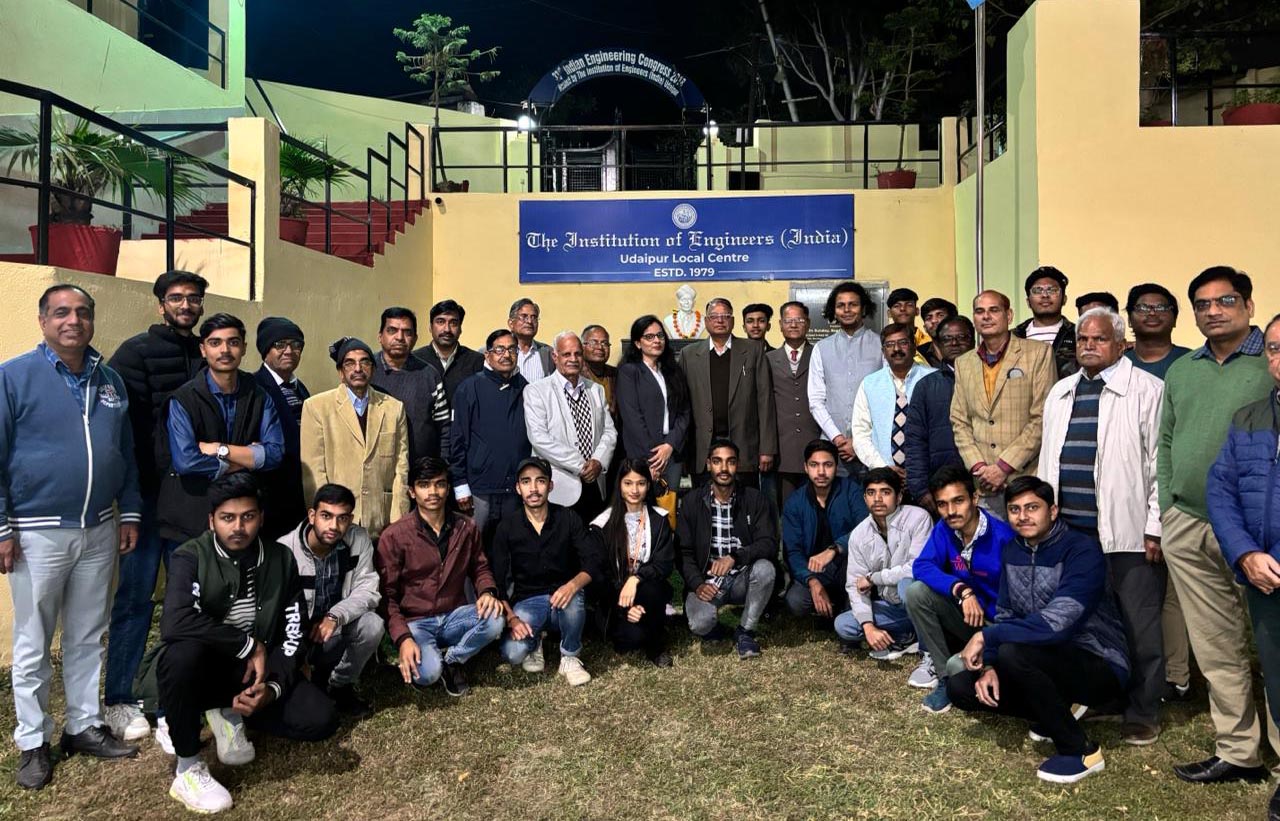
Udaipur – The Udaipur Local Centre of The Institution of Engineers (India) organized a comprehensive workshop on the role of electrical engineers in the changing landscape of e-mobility and smart grids. The workshop began with a welcome address by the institution's president, Engr. Purushottam Paliwal, who discussed the challenges in smart grids, such as the design and development of charging infrastructure, grid integration, energy management and optimization, and security and compliance with standards.
Engr. Piyush Javeria, Hon. Secretary of the Udaipur Local Centre, highlighted the crucial role electrical engineers play in the development and integration of charging infrastructure for e-mobility within smart grid systems. Their responsibilities span design, implementation, and maintenance, ensuring efficiency, reliability, and sustainability.
Dr. Ritesh Tirole, the keynote speaker, presented on the topic "Virtual Power Plant (VPP): A Transformative Energy Solution." He explained that a Virtual Power Plant (VPP) is an innovative energy management system that integrates decentralized energy resources such as solar panels, wind turbines, battery storage, and demand-response systems into a unified, cloud-based network. By operating as a single, flexible power plant, VPP optimizes energy production, storage, and distribution to enhance grid reliability and efficiency. Dr. Tirole discussed key features of VPP, including energy optimization, grid stability, integration of renewable energy sources, and cost efficiency. VPP plays a vital role in transitioning to a greener, more resilient energy future by empowering communities and industries to adopt clean energy solutions.
Prof. Neha Tak, Assistant Professor in Electrical and Electronics Engineering at BITS Pilani, Hyderabad, spoke about renewable energy, derived from natural sources that are continually replenished, such as sunlight, wind, and water. These sources are crucial for sustainable development and reducing dependence on fossil fuels. She discussed the role of hydro, wind, and solar energy in balancing electricity demand and supply. Prof. Tak also explained the characteristics of smart grids, which use advanced technologies for monitoring and managing electricity flow. Smart grids collect real-time data on energy usage and grid conditions through sensors and can automatically adjust energy supply and demand.
She further highlighted that India currently has 2.3 million electric two-wheelers and four-wheelers. Electric vehicles (EVs) help control pollution and reduce oil imports, but the disposal of batteries in EVs presents a significant challenge. While EVs are cheaper and have lower maintenance costs than petrol vehicles, they face issues such as high electricity bills, potentially long charging times, and the lack of charging stations that are as convenient as petrol stations. An ideal solar PV inverter should have qualities such as power quality, reliability, efficiency, and cost-effectiveness. Prof. Tak concluded by emphasizing that e-mobility and smart grids are revolutionizing the energy landscape and building a more sustainable and efficient future. By adopting these innovations, we can support the development of EVs, optimize energy distribution, and contribute to a greener tomorrow.
The workshop was concluded with a vote of thanks by Hon. Secretary Engr. Piyush Javeria.